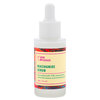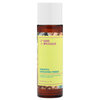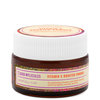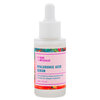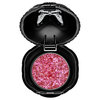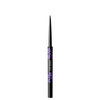Body By Kit: Is Too Much Protein Making You Fat?
Published Jan 8, 2012


If you’ve ever worked with a trainer and have discussed proper food intake, I bet you’ve heard the word protein come up in the conversation. It’s also very possible a big tub of protein powder was pushed in your direction. Just recently I had a new client who was desperate to lose seven pounds and reach her ultimate goal weight of 130. Her frustration was obvious—she thought she was doing everything right, so why couldn’t she get rid of those last stubborn pounds? Her workout regime seemed to be consistent and she was very careful with what she ate. She wanted so badly to look leaner and more toned but was having little success, so she approached me and described her diet:
“I don’t eat carbohydrates, but mainly protein and vegetables,” she started. “A typical day? Eggs in the morning with coffee or a protein shake, a large chicken breast with some veggies, and a protein bar for a snack. For dinner? Depending on my mood, maybe fish or steak with some red wine.”
“That’s a lot of protein” I responded.
“But that’s good right? I don’t want to get fat and I want to look toned,” she added.
“I get it. But you know, protein could turn into fat,” I said.
“WHAT?!!!!!!!!!!!!!!!!!!!!!!!” she yelled.
Diets may go in and out of fashion, but high protein meals have remained an American staple since Robert Atkins introduced his Atkins Revolution in 1972, a diet plan that focuses on protein as the body’s main source of fuel. According to Atkins, a protein-focused diet helps you lose weight and build muscle, while carbohydrates make you fat and should be avoided. The low-carb lifestyle has become synonymous with health—how often have you seen a woman downing a Muscle Milk shake as lunch, with no intention of working out that day?
Protein is absolutely crucial for the building and maintenance of body tissues such as skin, hair, blood, muscles, cartilage and bones. There are 20 amino acids that link together to help build protein and nine amino acids cannot be produced by the body. These nine essential amino acids can only be taken in from food, and without them the body would not function properly. So, simply put: Protein is a must.
The problem is not protein itself, but the over-consumption. When thinking about protein, most Americans immediately associate it with animal products, including meat, dairy, and eggs or protein substitutes such as shakes and bars. Or if you’re a vegetarian, protein means beans, nuts or soy products (such as tofu). But protein is actually in everything. Yes, it is in our vegetables, legumes, nuts, seeds, grains, and even fruits. Often times, we are consuming protein without consciously knowing it.
A woman who lives a somewhat active lifestyle should get 10-35% of her daily calories from protein (that’s about 50-60 grams of protein a day). But protein consumption is not limited to animal protein and meat substitutes, remember? Another way to calculate proper protein intake is simply multiplying your current weight by .4 if you are sedentary and .6 if you’re active. Confused?
Okay, think about it like this: If you weigh 150 pounds and sit all day long, 150 multiplied by .4 is 60. That means you should eat around 60 grams of protein a day—roughly the equivalent of 1 large piece of chicken and two scoops of peanut butter, total. So what happens if you’ve had eaten more protein than this?
The problem is that too much protein is stored in fat cells or discarded through urine. So yes, too much protein can turn into fat! Let’s also not forget that meat can be higher in calories than other forms of protein and higher in saturated fat, which leads to even more weight gain and health problems. Some other risks of consuming too much protein, more specifically too much animal protein, are strain on the kidneys and heart, and higher incidences of cancer (plant- and nut-based proteins can be protective for the heart).
Now this is not meant to scare or confuse you. In fact, you don’t even really need to calculate your protein intake if you limit your animal protein and allow the majority of your diet to consist of vegetables, fruits, grains, beans, and tree nuts. Yes, you can eat meat if that is what you desire. I eat meat, but I limit my animal protein and make sure to replenish my energy with vegetables and fruits.
Of course there are professional athletes, body builders, and those with certain illnesses who have special dietary needs where extra protein might be necessary. But if you’re someone who works out maybe 3-4 times a week for an hour at most and are in good health, a body builder’s diet is just overkill.
So next time you reach for that pre-packaged protein shake made up of ingredients you can’t even pronounce, reach for a veggie smoothie or juice instead. You’ll have even more energy and your body will thank you in the long run.
HOW TO DETERMINE GRAMS OF PROTEIN
1 OUNCE OF MEAT: APPROX. 6 OR 7 GRAMS
Chicken breast (3.5 ounces): 30 grams
Steak (6 ounces): 42 grams
1 egg: 6 grams
Yogurt (1 cup): 8-12 grams
Milk (1 cup): 8 grams
Cheese (1 ounce): 6-10 grams
Soy beans (1 cup): 28 grams
Peanut Butter (2 scoops): 8 grams
Almonds (½ cup): 16 grams

Kit Rich is Los Angeles-based fitness trainer with endless exercise and nutritional know-how. Hollywood's hottest stars are addicted to Kit's unique, multi-disciplined approach that combines cardio, yoga, Pilates, and weight training. Kit's clients are immediately taken by her funny and honest approach to health and fitness. She treats her clients as she treats herself, "with a hard challenge, sensibility, sensitively, and a good laugh." Follow Kit on Twitter @kitrichfitness
You Might Also Like
-

Fitness
The Ultimate One-Move, Five-Minute Workout
- 2695
-

outFit with Kit
Fact or Fiction? 5 Fitness Myths Unmasked
- 1446
-

outFit with Kit
Why I Don’t Believe In New Year’s Resolutions
- 152
-

Wellness
Body by Kit: The Ugly Duckling Syndrome
- 538
-

outFit with Kit
outFit With Kit: Calm the Mind, Calm the Body
- 401
-

outFit with Kit
NECK STRENGTHENERS AND STRETCHES
- 1723
-

Fitness
Advanced Core Work on the Exercise Ball
- 1416
-
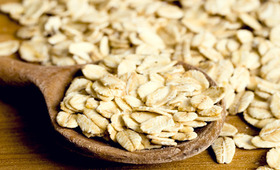
Nutrition
Oats: The Multi-Tasking Energy Grain
- 119





 Kit Rich is Los Angeles-based fitness trainer with endless exercise and nutritional know-how. Hollywood's hottest stars are addicted to Kit's unique, multi-disciplined approach that combines cardio, yoga, Pilates, and weight training. Kit's clients are immediately taken by her funny and honest approach to health and fitness. She treats her clients as she treats herself, "with a hard challenge, sensibility, sensitively, and a good laugh." Follow Kit on Twitter @kitrichfitness
Kit Rich is Los Angeles-based fitness trainer with endless exercise and nutritional know-how. Hollywood's hottest stars are addicted to Kit's unique, multi-disciplined approach that combines cardio, yoga, Pilates, and weight training. Kit's clients are immediately taken by her funny and honest approach to health and fitness. She treats her clients as she treats herself, "with a hard challenge, sensibility, sensitively, and a good laugh." Follow Kit on Twitter @kitrichfitness